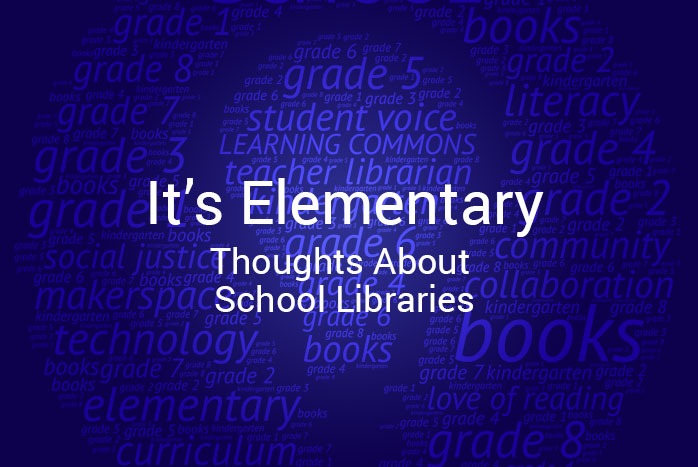I am intrigued with the work of fabulous secondary teacher librarian, Jonelle St. Aubyn. Her practice is both familiar and innovative.
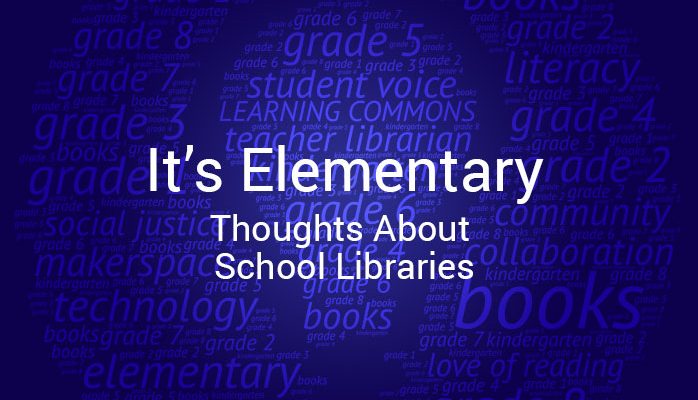
Amplifying the voices of school libraries: Summer lending programs
To document the work of school library professionals across Canada and the research which demonstrates the impact of a thriving school library learning commons on student success in K-12 education and beyond, Canadian School Libraries hosts a symposium and think tank every two years. In 2017, It’s Elementary columnist, Jennifer Brown participated in this gathering known as Treasure Mountain Canada 5 in Winnipeg, Manitoba. She shared her experience in a March 2018 Open Shelf column Gathering with the voices of Canadian school libraries: Treasure Mountain Canada 5.
During the 2020 OLA Super Conference, in partnership with OSLA, the voices of Canadian school libraries once again came together to share, discuss and celebrate the incredible work in K-12 school library learning commons across our country. Treasure Mountain Canada 6 produced a vast and diverse online collection of research papers and personal accounts of the work and importance of the school library. Jennifer, once again participated in this event and contributed her own submission to TMC6, Reflections in the Library Learning Commons: Collaboration.
Each month the It’s Elementary column will highlight a different paper from TMC6 and it’s author(s). This month we feature Anita Brooks Kirkland and Carol Koechlin.
In the Ontario school library community it’s almost impossible to discuss the evolution of our practice without mentioning Anita and Carol. In my role as teacher librarian, I studied their writing and ideas around moving from a traditional library to a school library learning commons as part of my additional qualifications training. Their advocacy on both the national and provincial levels is essential to the future of K-12 education. School library professionals all over Canada use their work in Leading Learning, Canadian School Libraries Journal, Treasure Mountain Canada, and beyond to guide and inspire our daily practice.
On a personal note, I believe that Anita and Carol’s greatest gift is noticing and mentoring teacher librarians like myself and countless others. They know that the future of school libraries rests on the shoulders of those just starting their journeys and the importance of bringing us all together. Their summer lending initiative is a prime example of their ability to connect school library professionals across Canada in a common goal and to collect research data and feedback in an authentic manner. As one of the participating schools in this pilot project I can personally attest to the impact on our students.
Anita Brooks Kirkland and Carol Koechlin: Summer lending challenge

As a writer, presenter and consultant, Anita Brooks Kirkland (left) specializes in school library learning commons practices, program assessment, research, and advocacy. She draws on her extensive experience as a teacher-educator, both as an instructor in teacher-librarianship for the Ontario Institute for Studies in Education (OISE), University of Toronto, and in her previous role as the Consultant for K-12 Libraries at the Waterloo Region District School Board in Ontario. Anita was a contributing writer to Together for Learning, Ontario’s guideline document for the school library learning commons. Anita is very active in professional organizations, currently serving as chair of Canadian School Libraries (CSL) and co-editor of the CSL Journal. She was the 2014 president of the Ontario Library Association, and also served as president of the Ontario School Library Association in 2005. Anita shares an extensive collection of program resources, articles, and presentations on her website and blog, www.bythebrooks.ca.
Carol Koechlin (right) is an experienced educator who has contributed to the field of information literacy and school librarianship by writing professional books, articles for professional journals, facilitating on-line courses, and presenting workshops in Canada, United States and Australia. Working with Dr. David V.Loertscher, the pair has developed foundations for the transformation of school libraries and computer labs into a Physical and Virtual participatory Learning Commons. Explore their work at The School Library Learning Commons – Future Forward. Carol is a founding member of Treasure Mountain Canada (TMC) and has co-chaired TMC Symposiums since 2010. Carol was a contributing writer for Together for Learning: School Libraries and the Emergence of the Learning Commons and writing coordinator for Leading Learning: Standards Of Practice For School Library Learning Commons In Canada (Canadian Library Association, 2014). She is currently a director of Canadian School Libraries (CSL). Carol’s favourite saying is “Empower students to own the question”.
What is the history of Canadian school libraries?
Canadian School Libraries (CSL) was born out of crisis. The Canadian Library Association (CLA) dissolution in 2016 effectively orphaned a number of projects of national importance to the school library world. The new national standards, Leading Learning (2014), were visioned to be a continuously-developed, living document and would no longer have no home. In addition, members of provincial, territorial and national school library associations had collaborated to create these standards and risked losing this cross-country network that was working so well to advance school library practice. In addition, the only national publication dedicated to school library practice, School libraries in Canada, was ceasing publication and Treasure Mountain Canada (TMC) research symposium lost a national partner.
Early in 2016, this crisis was a topic of intense conversation amongst attendees at the fourth TMC symposium.. As a result of this dialogue, a working group was formed and subsequently launched a national survey and a start-up fundraising campaign that ultimately led to the formation of CSL. By February 2017, CSL was incorporated as a non-profit organization with charitable status. CSL received a great deal of support from the Ontario Library Association and the new Federation of Canadian Library Associations during this formative stage. As part of the dissolution process, CLA transferred intellectual property rights for Leading Learning and the School libraries in Canada archives to CSL, and by agreement CSL continues to sponsor the long-established Angela Thacker Memorial Award and Canadian School Library Day.
CSL has been very ambitious in its short lifetime. Leading Learning is on the web in English and in French, with new resources and exemplars being continuously added. Our new online journal is thriving. TMC has become an official project of CSL, and we have hosted two very successful symposiums since our formation. We have been able to make the collective research of all TMC symposiums available through the CSL Research Archive, we’ve developed a wide range of professional resources available on our website, and perhaps most importantly, we believe we’ve been very influential in developing a common vision about the potential of the school library learning commons across the country through our broad network. CSL represents that vision internationally.
Not bad for a new kid on the block!
Tell us about the Eric Walters School Library summer lending challenge.
As part of an ongoing focus on the role of the school library learning commons in addressing summer reading loss, the co-editors of the Canadian School Libraries Journal invited best-selling author Eric Walters to contribute an article on the topic.
The article, School Is Out for the Summer (And Your Books Should Be Too), called for participation in his summer lending challenge, and a wonderful opportunity for Canadian School Libraries (CSL) to investigate whether summer lending programs in Canada’s school libraries could be successful, and if so, what factors would contribute to that success. Working with Walters, the researchers gathered information from participating schools. What emerged very strongly through our research is that losing the opportunity to read to whatever degree is not good for any children. School libraries provide a simple, doable and inexpensive way to make sure that every child has the opportunity to continue reading over the summer or to read more than they would otherwise. School libraries provide access to reading materials, and encourage freedom of choice.
A strong theme that emerged through our research was that the fear of book loss, which inhibits schools from summer lending, are largely unfounded. Students wanted to be trusted, and followed through with their responsibility to return materials in September. Losses incurred through summer lending are minimal, and worth the investment.
Benefits of implementing summer lending in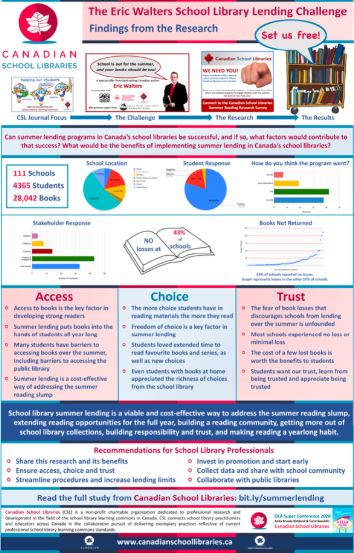
Canada’s school libraries
- Engaging students in reading to address the summer learning slump
- Building a community of readers within and across schools
- Putting books into the hands of students during the summer and academic year so that reading is a yearlong habit
- Getting more use out of school library collections
- Building responsibility and trust
Realizing these benefits of summer lending requires support from school administrators and teachers. Summer lending is a positive influence on placing the library learning commons at the heart of literacy and school-wide improvement.
We first shared this CSL research paper informally in a poster session at the 2020 OLA Super Conference and it created a good buzz. Conversations with those who stopped by to review the poster and chat confirmed that public and school librarians, educators, publishers, and parents were keen to explore the potential of summer lending in their libraries. The initial reactions were very predictable; disbelief in the minimal loss of books and genuine surprise at the simplicity of implementing a summer lending program through the school library learning commons.The poster is available in PDF format for downloading and printing.
What is the history of Treasure Mountain Canada?
Treasure Mountain Canada (TMC) is a school library learning commons research symposium and think tank. The Canadian School Libraries project is devoted to collaboratively exploring ideas to build collective knowledge of the learning commons approach as sustainable school improvement. TMC symposiums are held every other year, in locations across Canada and in partnership with other organizations and associations.
TMC symposiums are deliberately designed to model best learning approaches that we find in an excellent school library learning commons. Participants are supported by collaborative physical and virtual learning spaces and engaged in participatory learning experiences, robust challenges and collaborative knowledge building. Each symposium is organized around a central theme or project.
- Edmonton 2010: “Transforming Canadian school libraries to meet the needs of 21st Century Learners.”
- In Ottawa in 2012: “Learning for the Future: Working Towards Revised National Standards for School Libraries in Canada.”
- Victoria 2014: The launch of the CLA document Leading Learning: Standards of Practice for School Library Learning Commons in Canada.
- Toronto 2016: The deeper implementation of the national standards, and evidence that the standards are making an impact on teaching and learning in Canada.
- Winnipeg 2018: A project to help schools build Culturally relevant and responsive school library learning commons. This symposium was held in partnership with the Manitoba School Library Association SAGE Conference.
What was your big takeaway from your TMC 2020 experience?
Our TMC 2020 experience exceeded expectations: We created a rare learning dynamic that seemed to empower everyone. Presenters, paper writers, organizers, volunteers and every other participant felt the synergy build from Friday evening dinner festivities right through Saturday activities to the Loertscher Big Think.
Power in weighing in.
Power in engagement.
Power in learning from, with, and around each other.
(Daniel, 2019)
Jennifer Casa-Todd is a Grade 6 teacher whose students participated in ONedSschat. Jennifer has observed that her students are empowered by the social media learning experience. In her research paper, Amplify Student Voice by Connecting Students to Each Other & the World, Jennifer presented an articulate reflection of her students’ experience that summarized the best of participatory learning and summed up the TMC2020 experience as we observed it.
Explore the many excellent papers, comments and activities archived in TMC Blog. and enjoy the wrap up article and photo slide show in CSL Journal TMC6: Symposium Synergy. Feel the power!
What do you want Open Shelf readers to know about K-12 school library learning commons?
We all know the concerns about the decline in school library funding and reductions in staffing. However, the problem with years of crisis talk is that many people believe that school libraries are effectively a write-off. Nothing could be further from the truth.
Yes, there are very serious concerns—we just can’t get around that. But what we want everyone to understand, and most particularly our allies in other library sectors, is that school libraries today are places of creativity and innovation. Like all libraries, school libraries have been re-inventing themselves in response to new and evolving contexts. Exciting ideas about the library as a learning commons, as articulated in Leading learning, have inspired great innovations in practice over the past few years.
Right now, in the midst of the pandemic and in the early stages of emergency remote learning models, school libraries are taking the lead with new ways of connecting with learners and supporting teachers in the virtual space. School libraries remain an essential part of the library ecosystem and we hope that librarians from all sectors see our potential.
Anything else you’d like to share? School library programs will look drastically different in the post-pandemic world.
Along with Eric Walters, CSL members had great plans to expand the summer lending challenge. We wanted to include 500 schools for the summer of 2020, and engage in a second, deeper phase of research and all of this work has been postponed until 2021.
With sudden school closures, students have found themselves at home for an indefinite period of time without access to their school library. Many school librarians did their best to get books into the hands of those students before they departed, and we are also witnessing unprecedented efforts to connect kids to books, authors and reading online as the pandemic progresses. But the fact remains that many students are being deprived of books for the foreseeable future. Arguably, the importance of independent reading has never been so widely understood.
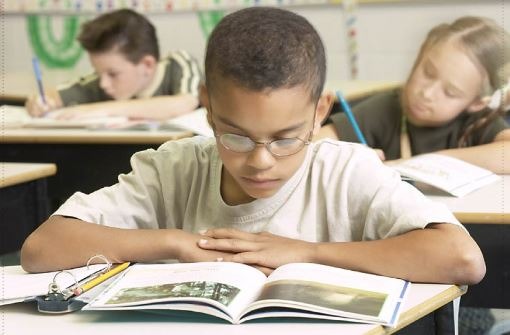
Schools, and specifically school library programs, are going to look drastically different in the post-pandemic world. The radical innovations that are underway right now, in the midst of the crisis, will inform future practices. We believe that there is a great opportunity for school libraries to lead the way within this evolving context.
At CSL, we are currently engaged in capturing a vision for 2020 and beyond. We are also encouraging practitioners to engage in action research as they explore new approaches. We are launching The Post-Pandemic School Library Learning Commons, an online resource designed to inspire innovation, provide a framework for assessing impact, and showcase projects from across the country. Staff and students need the guidance and support of school library learning commons professionals even more as they venture into designing new learning approaches and teaching environments.
We can all be proud of the swift action taken by library learning commons leaders across Canada.
Next up in the Amplifying the voices of school libraries series
Culturally relevant and responsive pedagogy in a racially homogeneous school
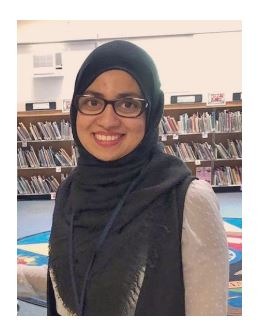
Rabia Khokhar is a long-term teacher-librarian with the Toronto District School Board and she is currently serving the Indian Road Crescent school community.
Rabia is passionate about ensuring schools are inclusive spaces where all students with their multiple and intersectional identities are reflected, represented and included. She believes one of the main goals of schools is to help students become active citizens who are aware, care a lot and take actions to make their communities better for all members.
Rabia is a strong advocate for the school library and believes it plays a central role in raising students who are critical thinkers and committed to issues around equity and justice.
Jennifer Brown is a teacher librarian with the Peel District School Board at Castle Oaks Public School in Brampton and the president of the Ontario School Library Association (OSLA). You can read more of her thoughts about issues in education, social justice, school libraries and more by following her Twitter account @JennMacBrown or her blog “Finding The Magic.”
